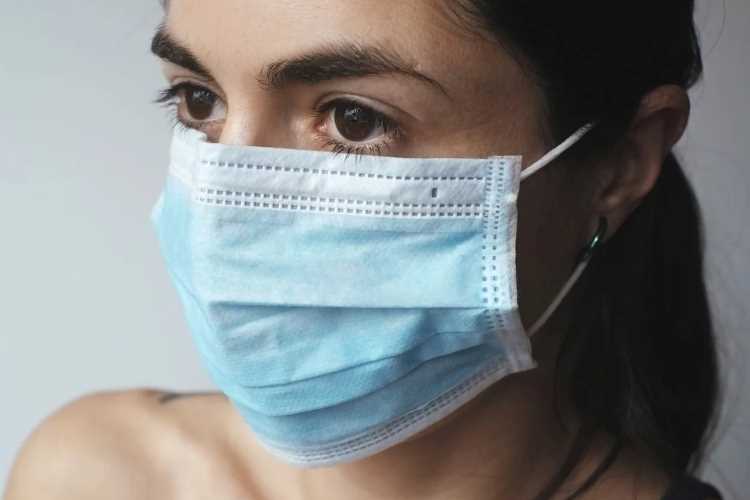
Kerala has entered a rapid growth phase in terms of Covid-19 infections. The reasons for the state reaching this rapid phase are multiple and they are interacting with each other in a complex manner only to make matters worse. The crowd behaviour has changed a lot in the last four weeks. The relaxations too have helped in the making of this rapid surge in the number of Covid patients in the state. The state is entering the most critical four weeks of the Covid fight for the state now. Every single step is more important in that context.
Kerala has more than 234,928 confirmed cases and more than 84,873 patients under treatment (home/hospital) for Covid. The state now stands third in terms of total active Covid cases in the country. Only two states – Maharashtra (255,000) and Karnataka (112,000) are more active cases than Kerala for this category. The daily increase in this category for Kerala is more than that seen for the two states, adding to the magnitude of this problem.
READ I Covid-19: Lessons from Sweden’s disastrous tryst with coronavirus
The state has recorded 859 deaths as per official records (disputed by many public health officials and quoted to be over 1100 by them). The daily reported new cases are now in the range of 8000 – 9000. It may reach 12,000 -15,000 new cases per day in the near future if additional steps are not taken immediately. The state’s burden of confirmed Covid cases shows a huge gradient with the maximum cases reported from Thiruvananthapuram at more than 12,487. Ernakulam (10,229) and Kozhikode (9,421) are also seeing a big burden as of now. The lowest burden is for Wayanad with 1,132 cases. The state now has more than 700 Covid hotspots.
If the current trends persist for a week or so, the doubling time for confirmed Covid cases may even shorten to less than 14 days. Currently this stands at 20 days. The worrying factor is that this is much smaller than the doubling time of 36 days for India. This means that Kerala may cross the 400,000 confirmed cases landmark at the end of two weeks from now if the current trend persists for the same period. The active case load may be at 120,000-140,000 which is beyond the existing capacities. The death rate at that point will definitely move upwards from the current level of 0.37%. It is expected that the state will peak within the next two to three weeks from now.
READ I Ageing in times of Covid-19 pandemic
The testing volumes also seems grossly inadequate as shown by the very high test positivity rates (number of positive subjects per 100 people tested). Kerala needs to keep it close to 5% or below that level in an ideal scenario. Right now, it is close to triple that level at 14.4%. This is among the highest values for any state in India as of today. The scene here doesn’t look well at this point.
The authorities need to be very aggressive in testing as more testing leads to more cases being identified. Once diagnosed, it is easier to bring infected patients and their families to the level of seriousness required to limit the infection from spreading to others. The state government should also be worried about the low accuracy (true positivity) of the antigen tests that are most commonly done currently. The false negative antigen tests can dampen the efforts in this massive fight.
READ I Race to Covid-19 remedy: Will the Oxford vaccine fail?
The state is struggling to cope up with the huge burden of Covid infections. A total of 257,707 subjects are under observation and 226,536 of them are kept under home isolation. More than 31,171 patients are hospitalised in the state and many hospitals have already exhausted their beds. Every day, close to 3,500 new patients are getting hospitalised with Covid infection. If this trend continues, the state will see an acute shortage of beds in the next four weeks. One needs to remember that once that happens, the mortality rate has only one way to move. The authorities should do everything to prevent that from happening.
If the state fails to contain the rapid growth of Covid patients now, it will see the declining care received by patients who report to hospitals with other illnesses. Already the population with chronic illness like heart disease, cancer and chronic kidney diseases are finding it extremely difficult to complete their scheduled follow up. The state has also seen a decline in availing of vaccination services among children and antenatal care among pregnant women. Every patient or person who is in need of medical care is feeling the heat of non-availability of such services now. This will only get worse in the next two weeks.
READ I Why RBI cannot ignore the food price dynamics while fixing rates
The state definitely needs a revised strategy for the next four weeks. The government and the public need to act accordingly from today onwards. The state should immediately restrict the free movement of public and restrictions should be in place to eliminate crowd gatherings at any cost for the next two weeks. People should be sensitised to avoid all non-essential travel for the same period. The state can also think of rolling back some of the relaxations for the next week to contain the rapid rise in the number of cases. Business establishments should be strictly monitored for compliance towards current Covid protocols. Any lapse should be seriously dealt with appropriate fines imposed on defaulters. This strategy can be reassessed at the end of two weeks.
If the authorities fail to act now, the state may pay for it big time. So, pitch in with your part and pray for others to fall in line. Every life is precious – be it young or old, rich or poor, healthy or sick. Let us save some more lives from those extra bits of action.
(Dr Manu Raj is a pediatrician, clinical researcher and research methodologist based in Kochi.)
Dr Manu Raj is a paediatrician, clinical researcher and research methodologist based in Kochi.

